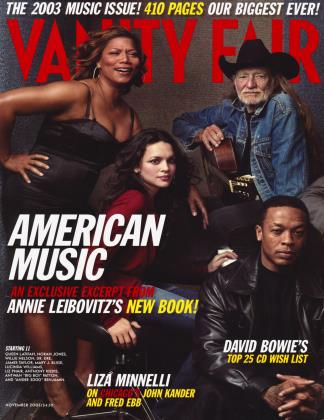Sign In to Your Account
Subscribers have complete access to the archive.
Sign In Not a Subscriber?Join NowDancehall Craze
SEAN PAUL GOES PLATINUM, JAMAICAN-STYLE
Perhaps it was inevitable that when authentic "dancehall"-style reggae finally broke big in America it would be brought by a singer raised not in Bob Marley's hardscrabble Kingston 13 (Trench Town to you) but in the leafygreen suburban precincts of Kingston 8. Thirty-year-old Sean Paul, whose last name of Henriques belongs to one of Jamaica's most venerable, centuries-old Jewish families, was raised "uptown" in Kingston, attending private schools (Hillel Academy, for one) and, like his grandfather and father, playing water polo for the national team. His 2002 album, Dutty Rock, has gone platinum and then some, and has spawned a No. 1 single in "Get Busy." (Hiphop is the U.S. version of dancehall—think of a frenetic, danceable beat overlaid with girls-and-guns lyrics, blasting all day from ubiquitous street sound systems in Jamaica.) Life is now a whirl of appearances on Leno and at Hot 97's Summer Jam, collaborations with the Neptunes and Beyonce, and tours with Jay-Z and 50 Cent. Paul has opened the door Stateside for other dancehall stars, such as the cartoonishly lisping Elephant Man and the crooning Wayne Wonder. "When I perform now at home, I need security," he says incredulously. "It's crazy for me to think I have to have it in my own country." The singer is acutely aware that street cred at home is the coin of his realm—he is now dutifully recording his latest album not in his label's fancyschmancy New York high-rise but at Steely and Cleevie's, Lenky's, King Jammy's, and Jeremy Harding's Kingston studios. "This," he notes, "is where the hits are coming from."
MARC GOODMAN
 View Full Issue
View Full Issue












Subscribers have complete access to the archive.
Sign In Not a Subscriber?Join Now